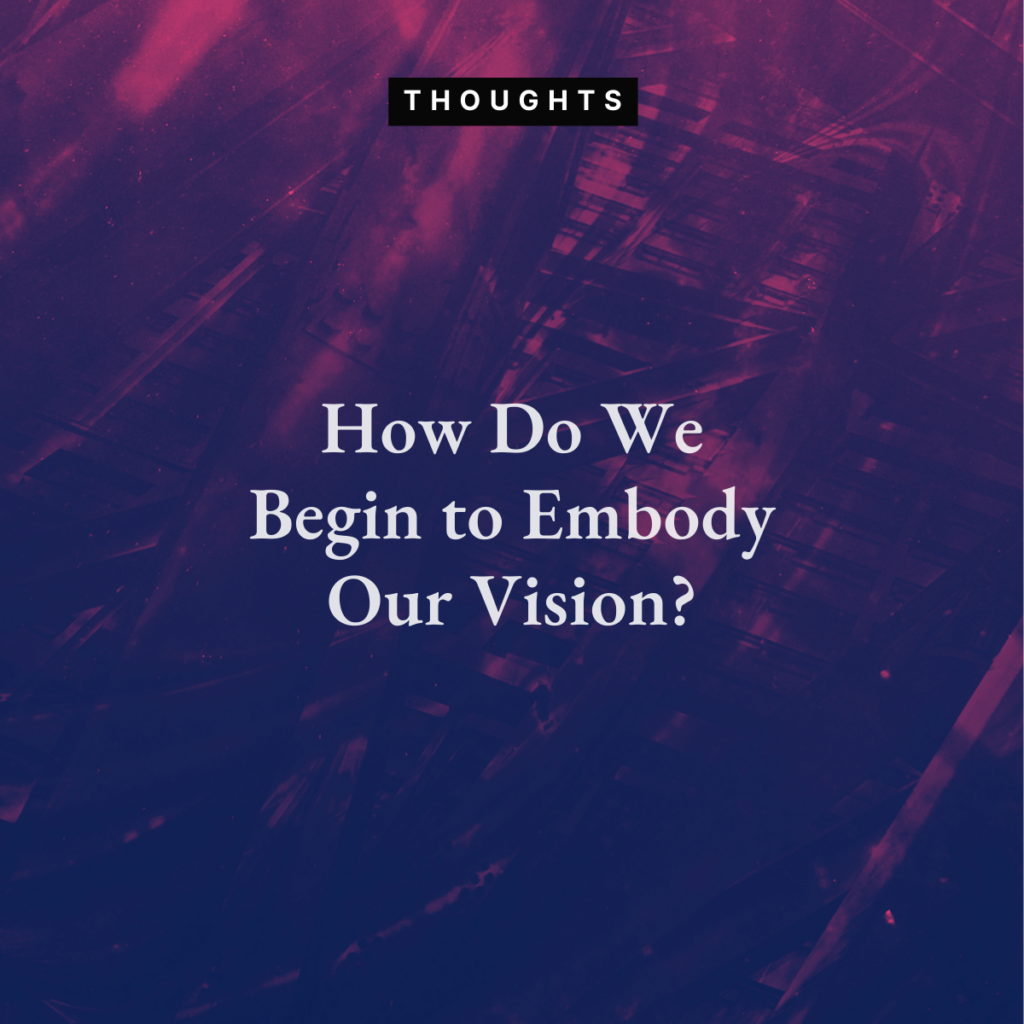Have you grown up fearing accountability, avoiding it, or even believing that it is just the ‘right’ thing to do even when it might feel uncomfortable? Or perhaps you have this idea that if you take accountability, that means you have to admit you are wrong, or that you made a mistake, or that you’re not perfect? Whatever feeling you have towards accountability or taking accountability may be different than someone else’s. It likely is.
Accountability can be something you hold yourself to, or it can be something that you push onto others out of love or fear. It can also be something that is pushed onto you without welcome or with a subconscious intent to spur you into action. Regardless of how you feel towards accountability, how you frame it, how you receive or reject it, or how you bring meaning to it, I think it’s important to let you in on a little secret…
Everything is meaningless until we give it meaning!
And that is why accountability is seen, felt, acted upon, or rejected differently by different people. I’m not here to tell you where or how you get to define it, or embrace it, or sit with it. But I’m here to offer you a reframe.

This past month, I’ve noticed a pattern in the work I’ve been doing with my clients to release shame among old stories, heaviness among responsibility, overwhelm among undeserving thoughts. And what we’ve been working towards is self-forgiveness. Yet forgiveness doesn’t ever seem to be a main ingredient when it comes to accountability over the desire to bring justice. But should it?
I gave “accountability” a little Google search and found that Webster’s Dictionary defines it as “the obligation or willingness to accept responsibility for one’s actions.” Hmm. Isn’t that interesting.
The meaning that I have always related to obligation was this feeling of “have to do.” Whereas the meaning that I relate to willingness is more of making a choice to accept or decline… or maybe even just beginning to become open to an idea of something or see how you feel somewhere on a spectrum. And the action that it makes me think of is getting to make a decision of what we are willing to do or not do. Your meanings may be very different than mine. My meaning of responsibility has always felt to me as if it was an obligation. An obligation to do, to show up, to step up, to act upon regardless of willingness. If you’re confused by what meaning this really gives the word “accountability”… I am confused too. But what I take from this mostly is that there is a decision to be made when we ourselves, someone else, or society holds us accountable. A decision to take action or a decision to decline to do anything at all.
The best I can do next is to share some examples of how we can experience accountability out in ‘the real world.’
In both the workplace and personal life, accountability can be demonstrated through meeting project deadlines, taking ownership of tasks, and transparently communicating progress even if the deadlines are not met. This extends to admitting and learning from mistakes, actively participating in team efforts, and ensuring that individual contributions align with collective goals. How many times did you feel like this wasn’t the case in a work environment you’ve been in?
In personal lives, it can involve being punctual for appointments, following through on promises, and acknowledging the consequences of one’s decisions, even when there was no ill intent or malicious behavior behind the action. We also see not fulfilling commitments, placing blame, and ignoring the consequences of one’s actions to be behaviors that reflect a lack of responsibility. These actions can erode trust in both personal and professional relationships.
Embracing accountability can look like lots of different things that I didn’t share above. Perhaps you find it easier to think of the situations where people failed to take responsibility in your life… Like blaming others, making excuses for missed deadlines, denying mistakes rather than learning from them, and neglecting to communicate challenges in a timely manner. I can think of many times where I myself had the opportunity to ‘take accountability’ but my ego got in the way or the fear of ‘getting in trouble’ was all too real.
Taking responsibility not only strengthens professional relationships but also contributes to personal growth and a sense of integrity. It involves acknowledging mistakes without blame-shifting, actively seeking solutions, and communicating openly about challenges. It also invites us to set realistic goals and communicate honestly when we are unable to deliver on commitments.
The desire to hold someone accountable often stems from a sense of justice, fairness, and the need to address perceived wrongdoing. It reflects a societal or personal expectation that individuals should be responsible for their actions and face consequences when those actions have negative impacts.
Last week I scratched the floor of the Pilates studio while moving a piece of equipment. It was a small scratch, but immediately I felt myself wanting to hide, to avoid even acknowledging what had happened, even though it wasn’t so serious. My default was still to feel shame and want to avoid. In an effort to not go towards the other extreme of excessive apology, I took it as an opportunity to simply acknowledge this boo-boo to the owner and scrub the floor at the end of the class to try to push the scraped floor material back into the plastic tile. Why am I even telling you this? This story might seem really insignificant to you, but I wanted to share an example that gives us a real opportunity to show up differently for ourselves, where we get to give less meaning to something without avoiding or not showing respect to the situation, and taking an action to make something better without carrying the shame of feeling bad for an accident.
Whether taking accountability or holding ourselves accountable was created with the function of guilting, shaming, or judging, I’m not sure. But I have seen how the feelings of judgment and shame are manifested as a result of it. Isn’t that interesting? Because we cannot redo our deeds, and because it is not healthy to hold onto these feelings—welcome the overwhelm, guilt, and shame spirals—what is left is the choice for us to take action. Perhaps this is where we get to take responsibility for our actions. To offer an apology, to simply accept that this gets to be a learning lesson, and that we get to forgive ourselves for whatever impact our actions or lack of action made on others. No matter how big or small, you move forward, but how is up to you, not up to someone else.
Just like any action, forgiveness has the ability to ripple out into the world. And it is also a gift that you get to give to yourself that can touch people in ways that they too hadn’t imagined possible. By forgiving yourself, you say yes to emotional well-being, which has the power to positively affect your interactions with others. It can foster empathy, understanding, and healthier relationships, creating a ripple effect of compassion in your social circles. And it tells yourself that you are worthy of deep and profound love. Perhaps forgiveness is what you get to focus on instead?
If you’ve been struggling to forgive yourself for something, remember that acknowledging your worthiness of self-forgiveness opens the door to exploring the possibilities for healing and subconscious growth to a more compassionate future free of shame, guilt, and judgment, where you can build relationships based on trust, and where you can grow into a more honest and self-assured version of you.
↪ I’m here to support you through that journey of self-forgiveness no matter which stage of awareness or desire you’re at today. We can work through it during a Private Hypnosis Happy Hour Session. Book your session here!





